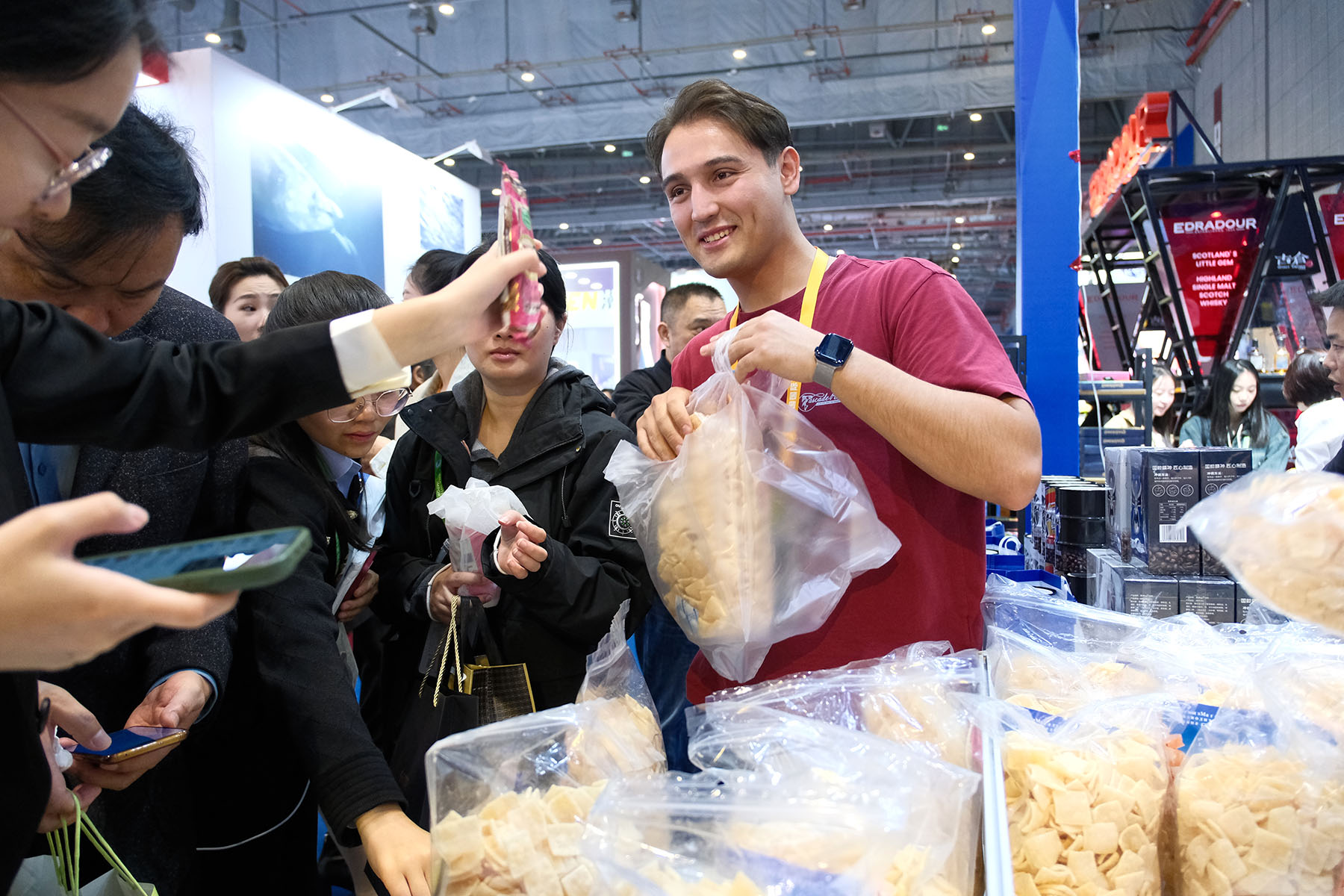China-Russia cooperation expanding in traditional areas, emerging sectors

China-Russia trade is expected to maintain growth momentum in the coming years, as both countries are actively strengthening business ties in manufacturing, green industries, cross-border e-commerce and other emerging sectors, said market watchers and exporters.
They said that with the improvement of logistics infrastructure, the rapid growth of China-Europe freight train services and rising demand for high-quality products on both sides, bilateral trade is set to grow steadily in the years ahead.
Highlighting that China has been Russia's top trading partner for 15 consecutive years, Chinese Ambassador to Russia Zhang Hanhui said that Sino-Russian trade has proved resilient amid external pressures, underpinned by strong drivers and complementary strengths.
READ MORE: Xi: China, Russia find right path of state-to-state interactions
Over 95 percent of bilateral trade is now settled in local currencies, said Zhang, adding that cooperation in traditional areas such as trade, investment, energy and aerospace continues to advance steadily, while collaboration in emerging sectors — including the digital economy, e-commerce, green energy, and scientific and technological innovation — is rapidly expanding.
Wan Zhe, a professor at Beijing Normal University who specializes in regional economic development, said Chinese exporters are intensifying efforts to provide products and services more suitable for the Russian market, while Russian companies are expanding their footprint in China with upgraded agricultural goods, food products and energy supplies.
Against the backdrop of a sluggish global economic recovery, pragmatic cooperation between China and Russia has defied the trend, showing notable growth in volume, improvement in quality and overall stability, according to China's General Administration of Customs and the Ministry of Foreign Affairs.
China and Russia have seen strong momentum in emerging sectors such as scientific and technological innovation, vehicle manufacturing, cross-border e-commerce and medical equipment.
Bilateral trade reached $244.8 billion in 2024, marking a 1.9 percent year-on-year increase and representing a 48-fold increase over levels in the early 1990s.
Metals, crude oil, natural gas, pharmaceuticals, medical equipment, agricultural goods and chemical products are Russia's main shipments to China, said China's General Administration of Customs.
China exports mainly construction machinery, manufacturing equipment, steel, electronics, textiles, garments and household appliances to Russia. Chinese-made passenger vehicles and smartphones have also become popular in Russia in recent years.
Yi Xinlei, an associate researcher at East China Normal University's Center for Russian Studies in Shanghai, said that China will continue to deepen cooperation with Russia by consolidating trade in energy, minerals and agricultural and forestry products, while also fostering new growth areas in the digital economy, cross-border e-commerce and trade in services.
"Most imports between China and Russia are complementary rather than competitive," said Yi. "It is only natural for both countries to introduce new measures aimed at optimizing the trade structure and nurturing fresh drivers of growth to sustain the current momentum."
Huayu Electrical Appliance Group, a Ningbo, Zhejiang province-based company, saw its export value of small household appliances — mainly air fryers — to Russia reach 14.54 million yuan ($2 million) in the first quarter, jumping 72.4 percent year-on-year, statistics from Ningbo Customs showed.
"Fried foods are an essential part of daily life in Russian households. Air fryers are not only easy to use, but compared with traditional ovens and microwaves, they are smaller, lighter and easier to move and clean, as well as well-suited to consumer needs for automation, remote control and personalized settings," said Li Xi, head of the company's foreign trade unit.
ALSO READ: China, Russia should strengthen coordination within BRICS, says Wang
Li said the company launched trial sales of its air fryer series in Russia in February 2024. The products were quickly embraced by Russian consumers, leading to a surge in demand.
Also upbeat about the Russian market, Lei Qingping, vice-president of Zhejiang Sanhe Kitchenware, a Ningbo-based producer, said Russia has been one of the company's key target markets in recent years.
"We have developed specialized products tailored to Russian cooking habits, and the market response has so far validated our strategy," said Lei.
Sanhe has achieved strong performance in the Russian market, with exports reaching 9.16 million yuan between January and March, up 70.7 percent year-on-year, according to Ningbo Customs.
zhongnan@chinadaily.com.cn


